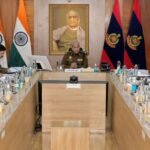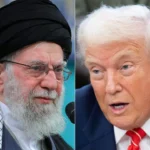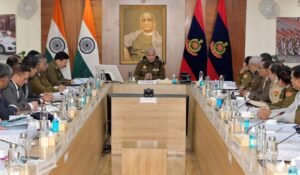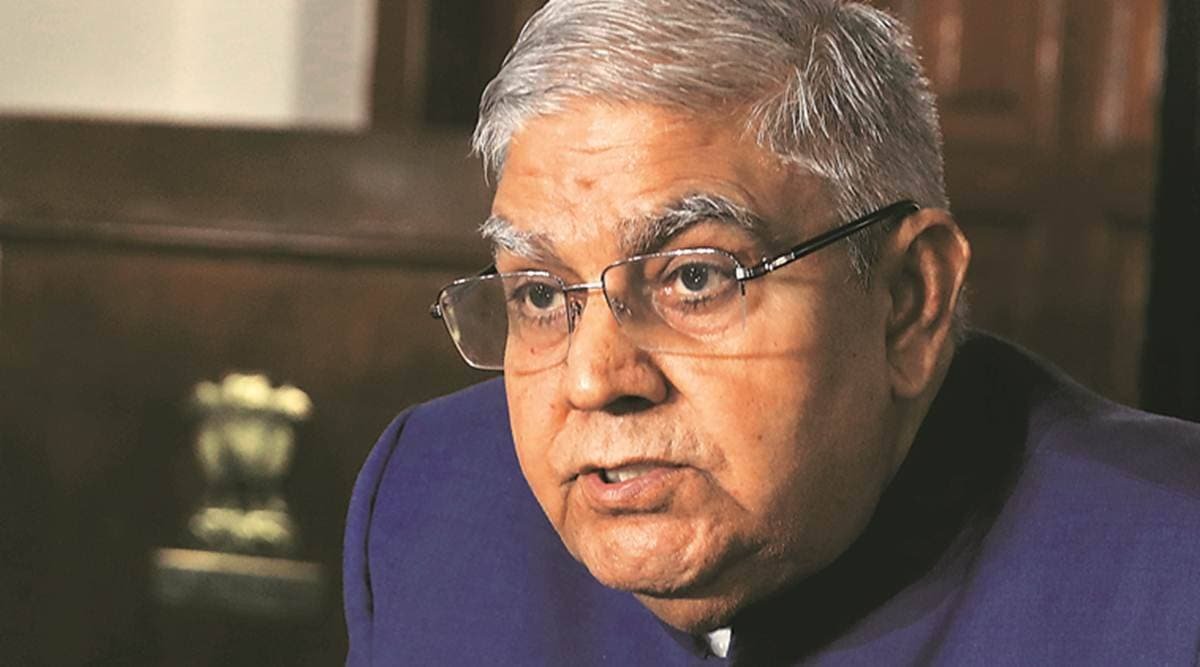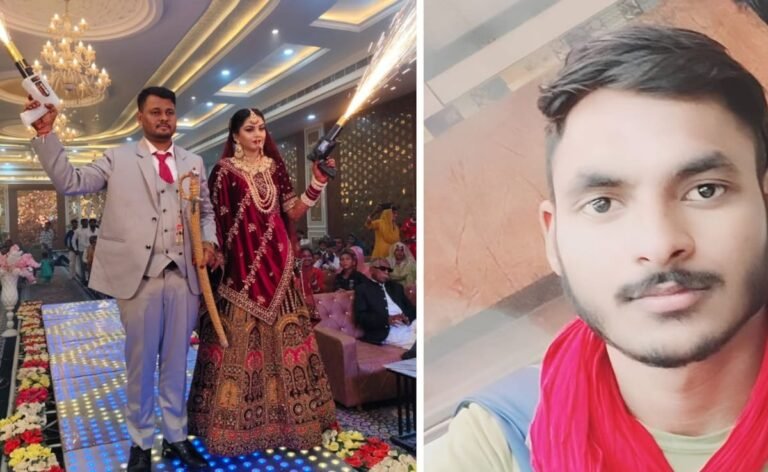agdeep Dhankhar’s term as Vice-President, cut short by his surprise resignation from the constitutional post late Monday evening, was marked by controversy as he spoke up against not just the Opposition but also the judiciary on multiple occasions. This followed his term as West Bengal Governor, where he had several run-ins with the Trinamool Congress (TMC) government.
In 2022, his term as the Rajya Sabha Chairman began on a controversial note during the Winter Session as he called the Supreme Court’s 2015 judgment striking down the National Judicial Appointments Commission (NJAC) Act a “glaring instance” of “severe compromise” of parliamentary sovereignty and disregard of the “mandate of the people”. He said Parliament, being the custodian of the “ordainment of the people”, was duty-bound to “address the issue” and expressed confidence that “it will do so”. The remarks, made in the House on December 7, were a reiteration of what he had said a week earlier.
Dhankhar also said it was time for “all constitutional institutions to reflect and give quietus to public display of adversarially challenging stance/trading or exchange of advisories emanating from these platforms”. The comments came at a time when the Opposition was planning to seek a discussion in the House on alleged government interference in the functioning of constitutional bodies, including a faceoff with the judiciary. A month earlier, then Union Law Minister Kiren Rijiju had said the Collegium system of appointing judges was “opaque” and “not accountable” and “alien” to the Constitution. His remarks had attracted the displeasure of the Supreme Court.
Comments on Basic Structure doctrine
A month later, on January 11, 2023, he rekindled the debate on the doctrine of separation of powers, citing the Supreme Court’s landmark 1973 judgment in the Kesavananda Bharati case in which it ruled Parliament had the authority to amend the Constitution but not its basic structure. Dhankhar, in his inaugural address at the 83rd All-India Presiding Officers Conference in Jaipur, said it would be difficult to answer the question, “Are we a democratic nation?”
“In a democratic society, the basic of any basic structure is supremacy of the people, sovereignty of the people, sovereignty of Parliament. Executive thrives on the sovereignty of Parliament. Legislatures and Parliament decide who will be the Chief Minister, who will be the Prime Minister. The ultimate power is with the Legislature. The Legislature decides who will be in other institutions. In such a situation, all Constitutional institutions – the Legislative, Executive, Judiciary – are required to be within their limits,” he said.
“In 1973, in the Kesavananda Bharati case, the Supreme Court gave the idea of basic structure saying that Parliament can amend the Constitution, but not its basic structure. With due respect to the Judiciary, I cannot subscribe to this,” Dhankhar said.
Reviving the NJAC debate
This March, amid the row over the discovery of wads of currency notes at the New Delhi home of High Court judge Justice Yashwant Varma, Dhankhar again revived the NJAC debate. He said “things would have been different” if the Supreme Court had not struck down the mechanism for judicial appointments. His remarks on March 25 came on a day a three-member committee constituted by the Supreme Court began its inquiry into the conduct of Justice Varma and visited his residence.
The NJAC Act had proposed that appointment of judges be done by a six-member body, headed by the Chief Justice of India, and comprising two most senior SC judges, the Union Law Minister and two “eminent” persons. The two eminent persons were to be selected by a panel comprising the Prime Minister, the CJI and the leader of the largest Opposition party in Lok Sabha.
However, the Supreme Court was of the view that there was no question of accepting an alternative procedure which did not ensure primacy of the judiciary in the matter of selection and appointment of judges in the higher judiciary.
On the judiciary and the President
On April 22, Dhankhar minced no words in questioning the judiciary soon after the Supreme Court imposed a three-month time limit on the President and governors to give their assent to a Bill. At a gathering at a Delhi University event to commemorate 75 years of the Constitution, Dhankhar said, “There is no visualisation in the Constitution of any authority above Parliament … elected representatives … They are the ultimate masters as to what (the) Constitution content will be.”
Dhankhar also said that India cannot have a situation where the judiciary directs the President. “So, we have judges who will legislate, who will perform executive functions, who will act as super Parliament, and absolutely have no accountability because the law of the land does not apply to them,” he said the same day in his address to the sixth batch of the Rajya Sabha interns at the Vice President’s Enclave.
